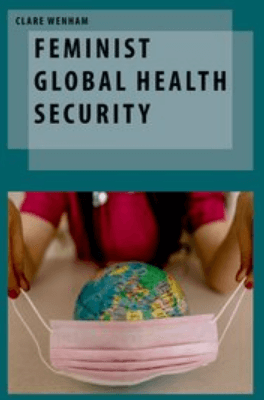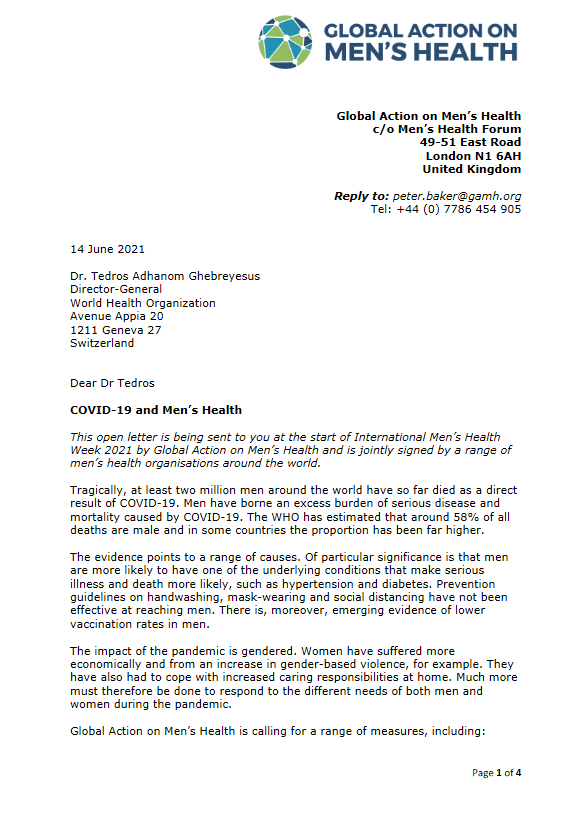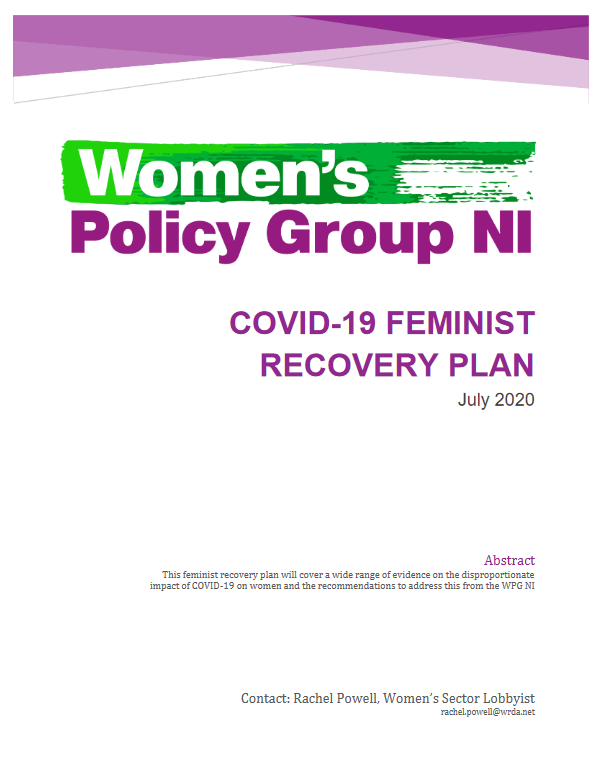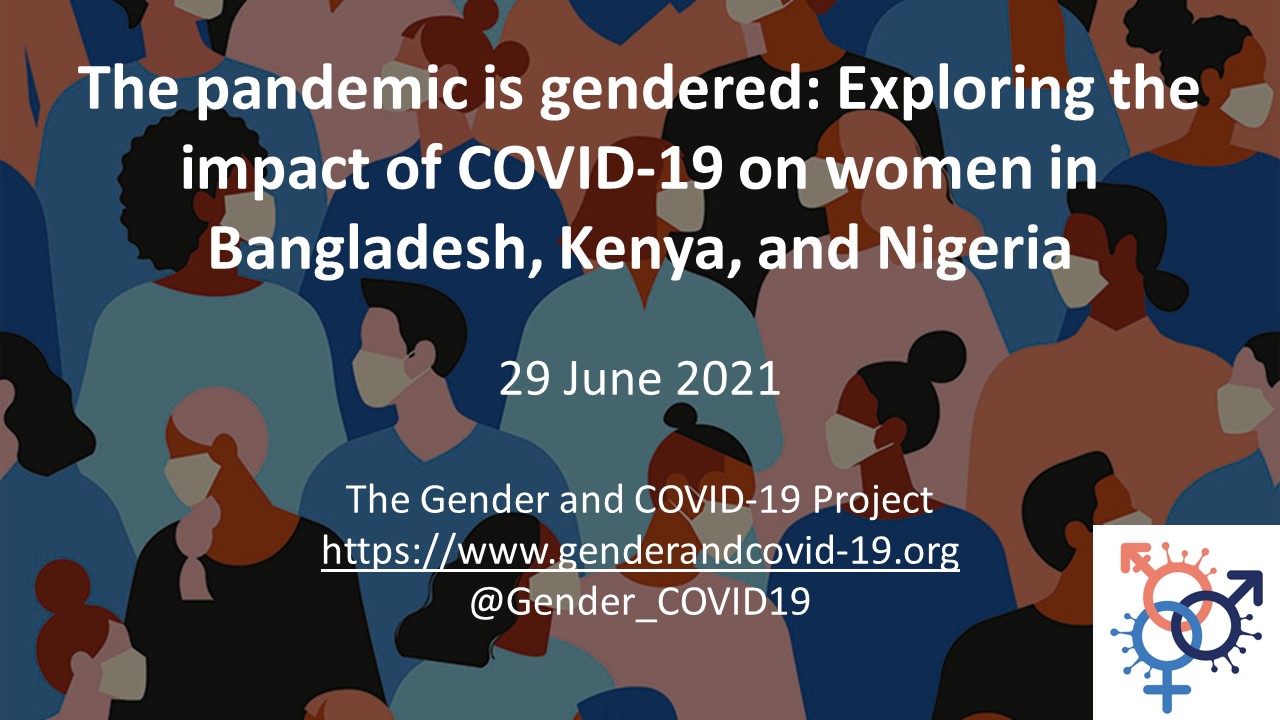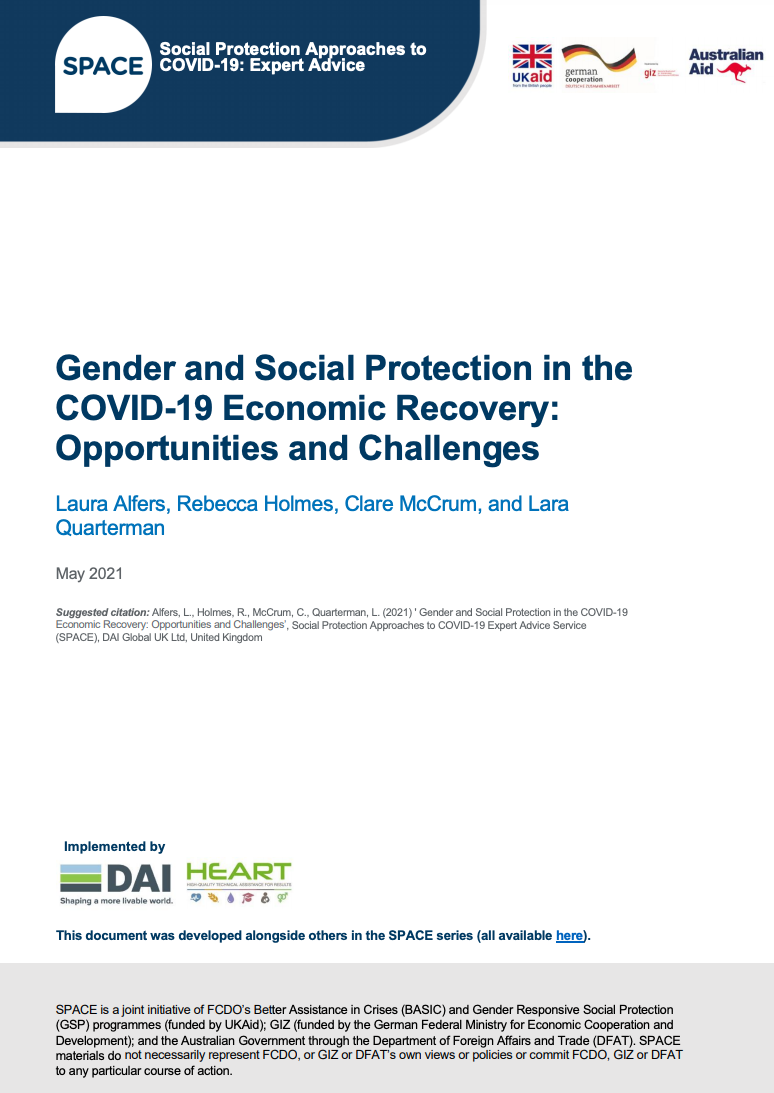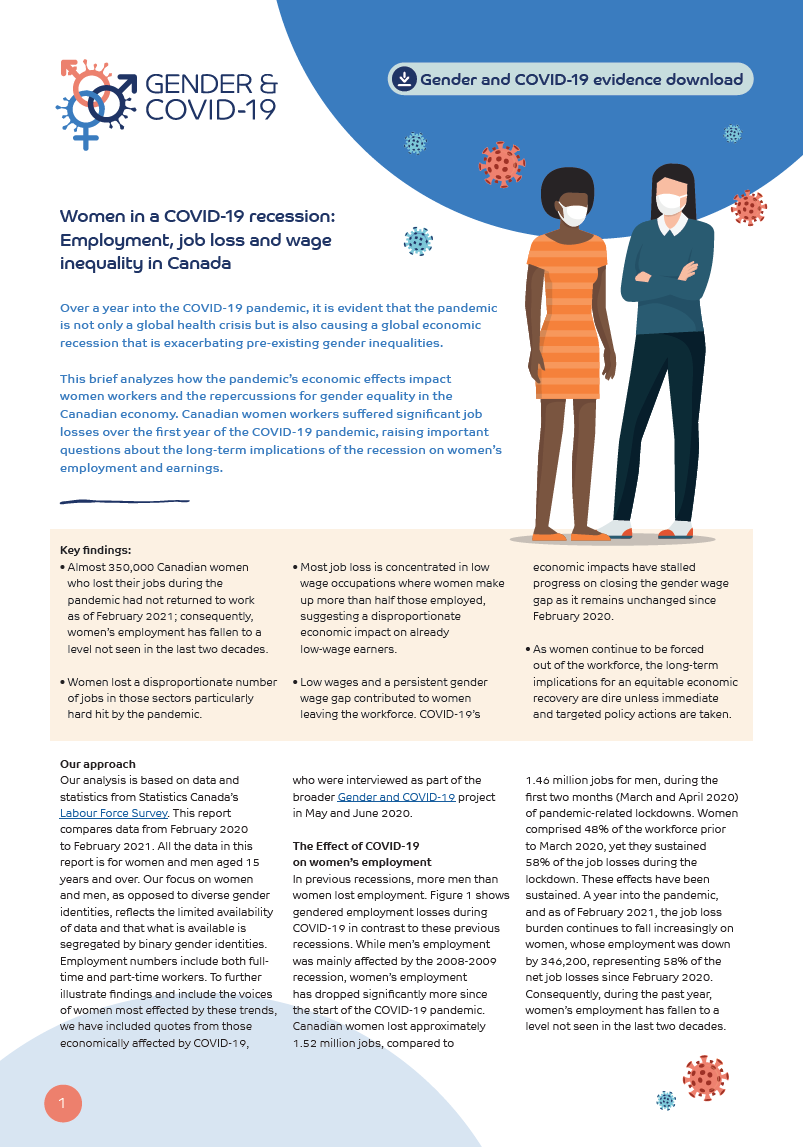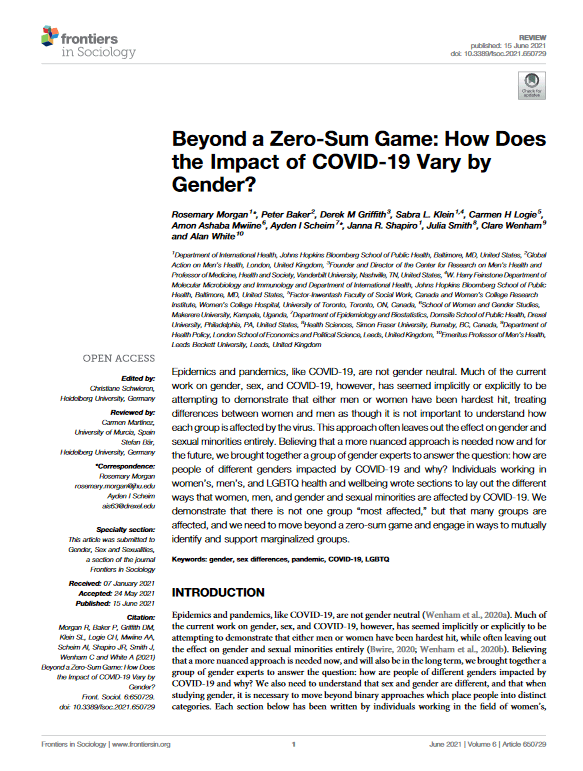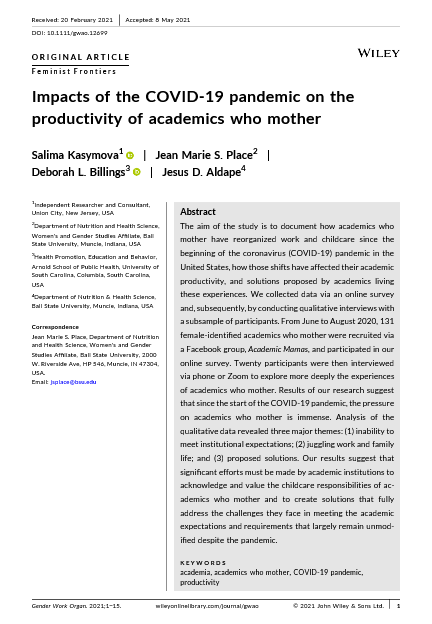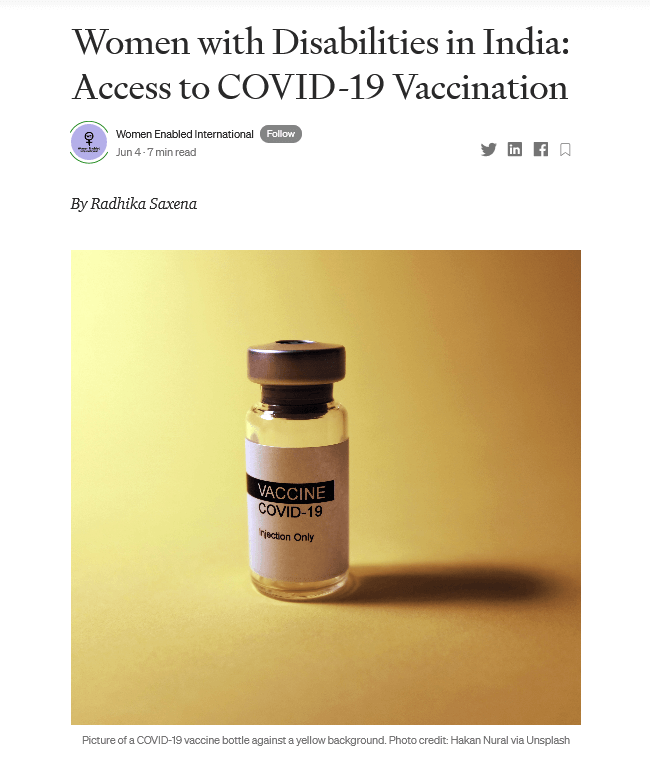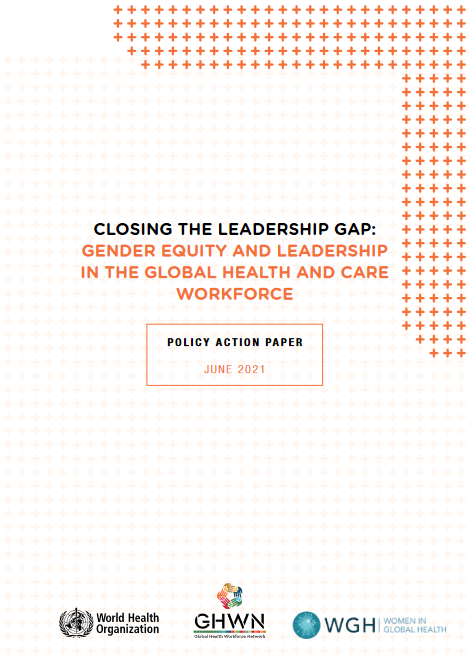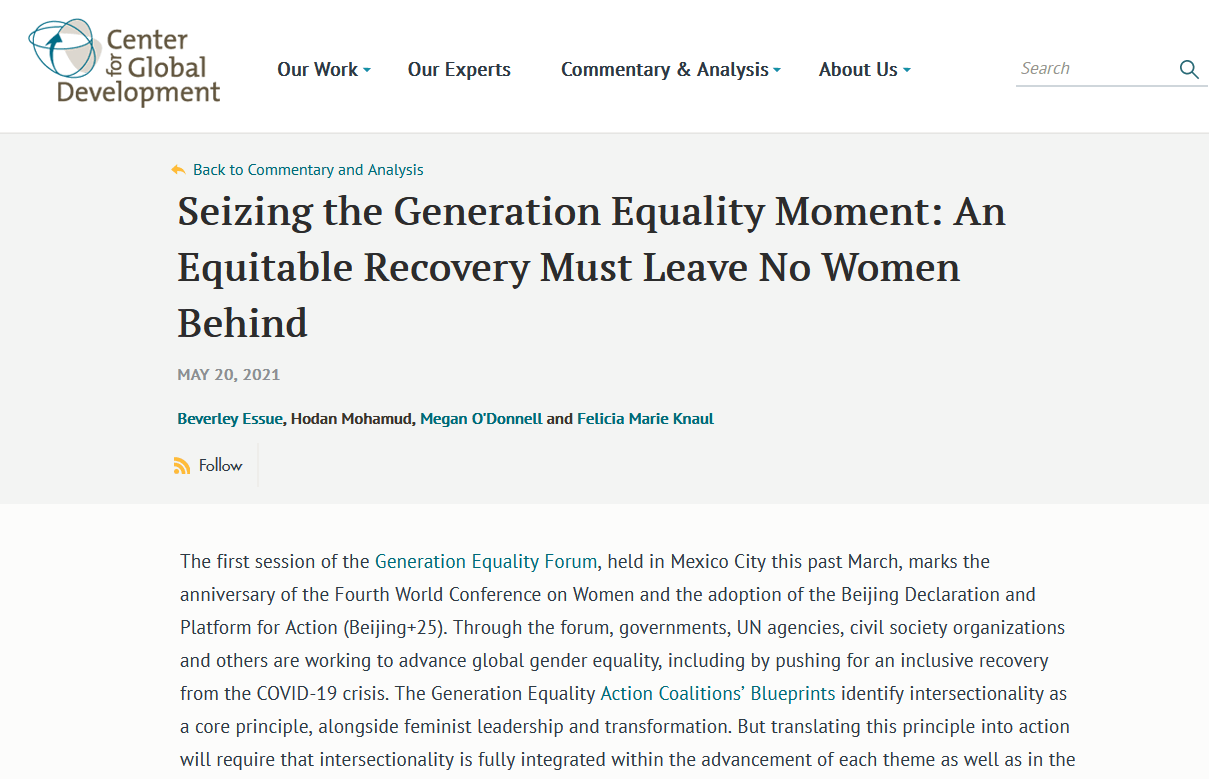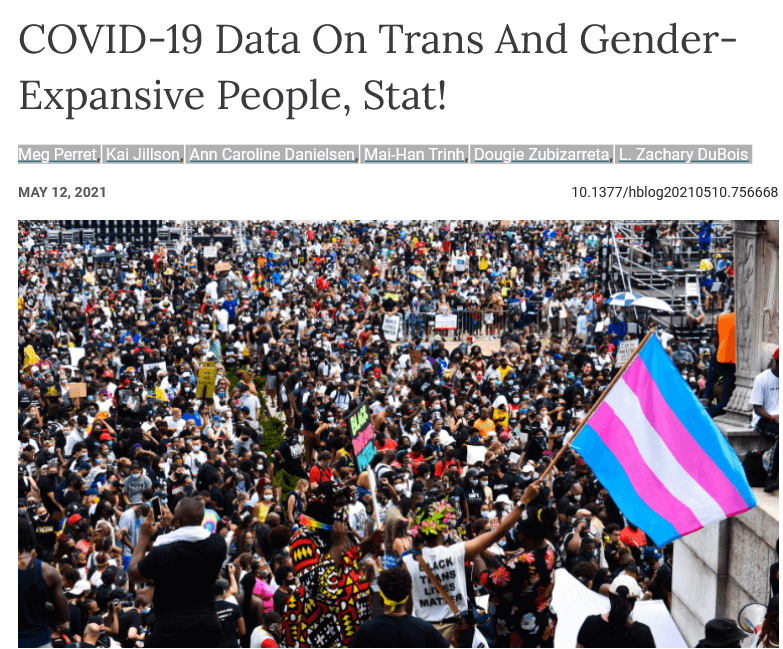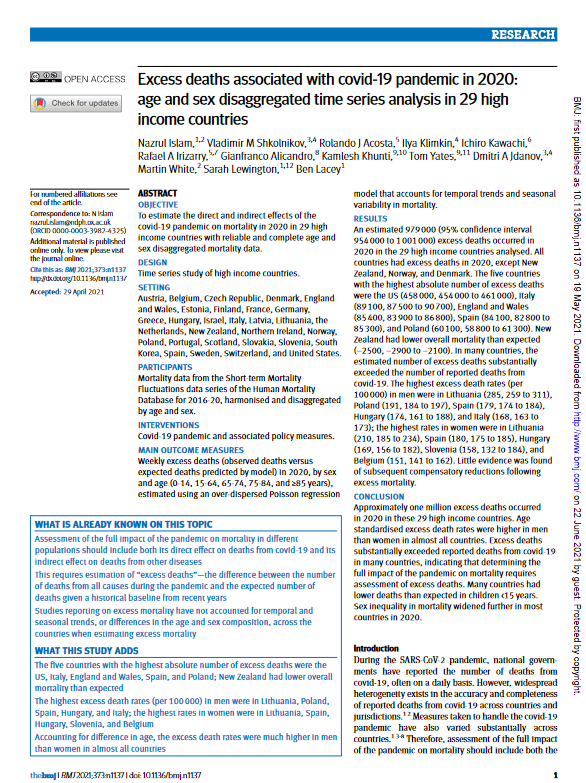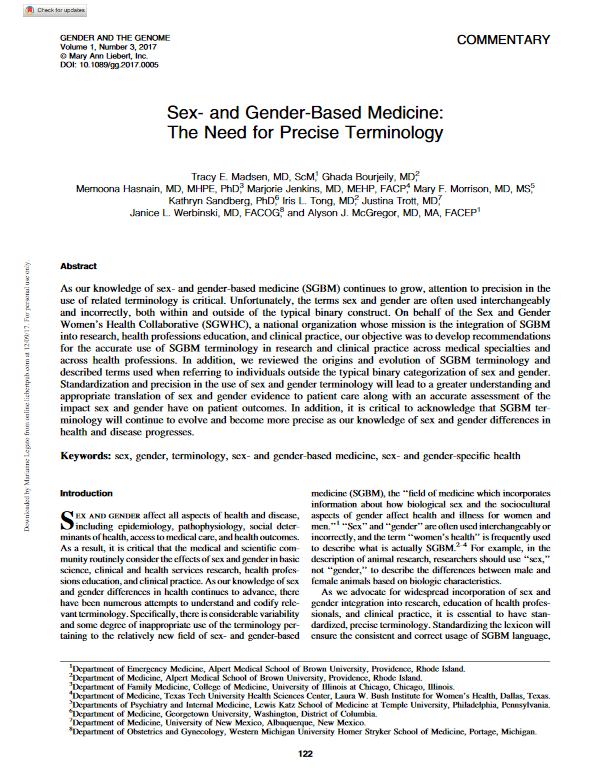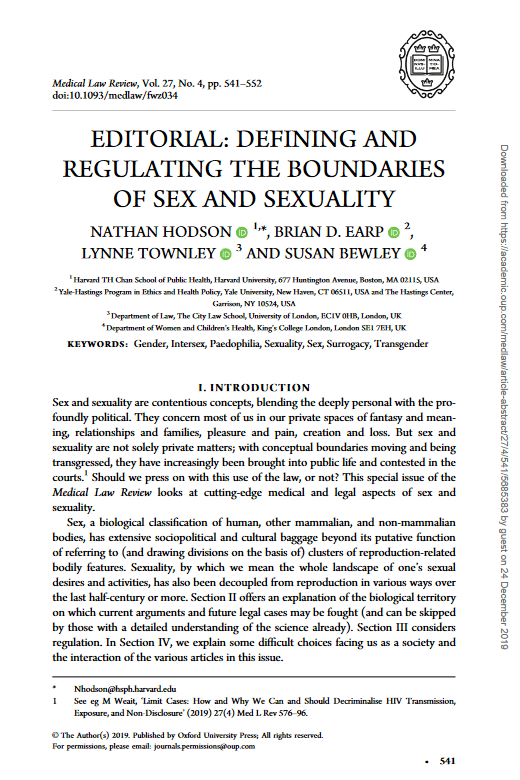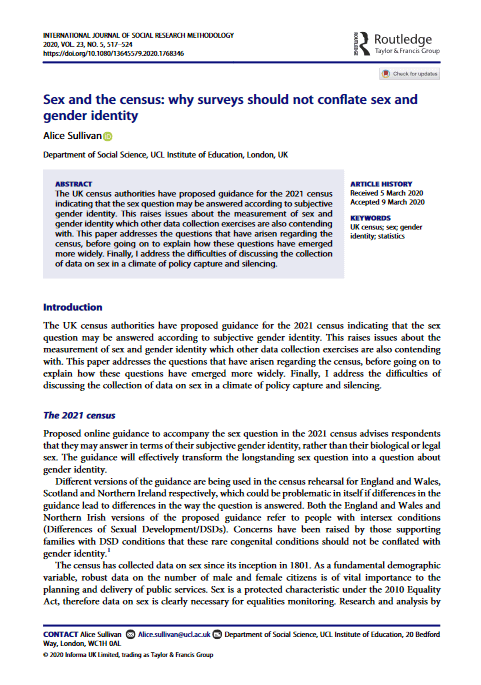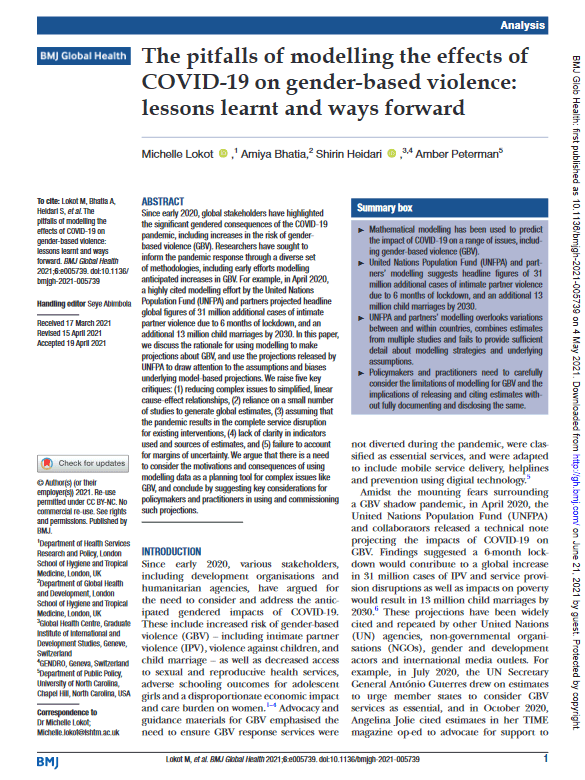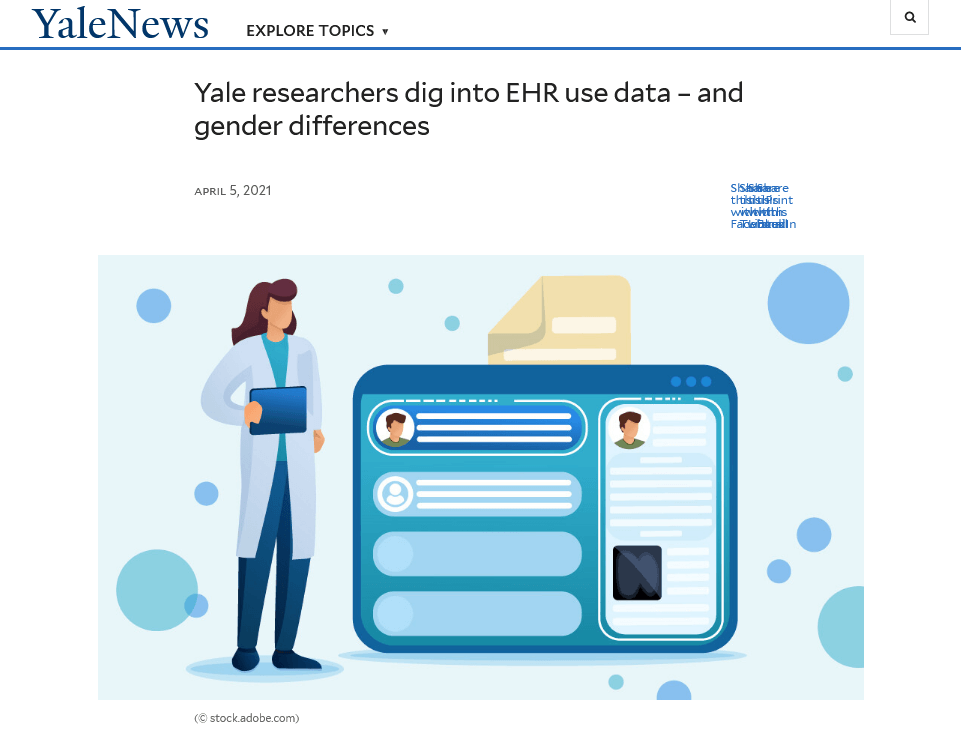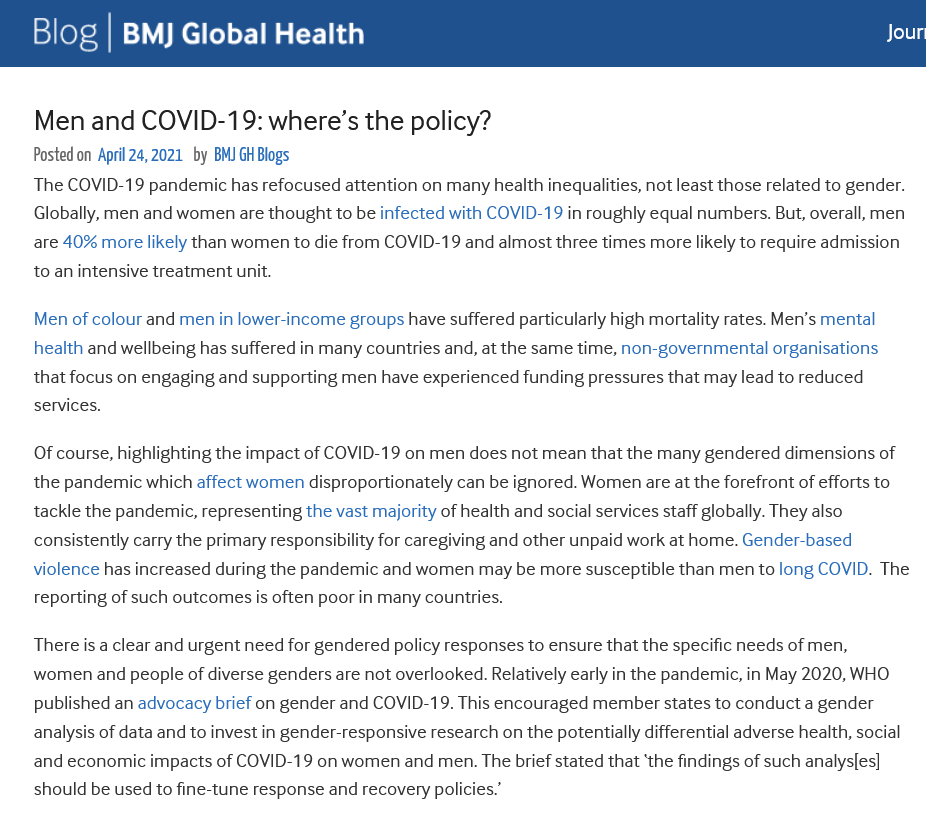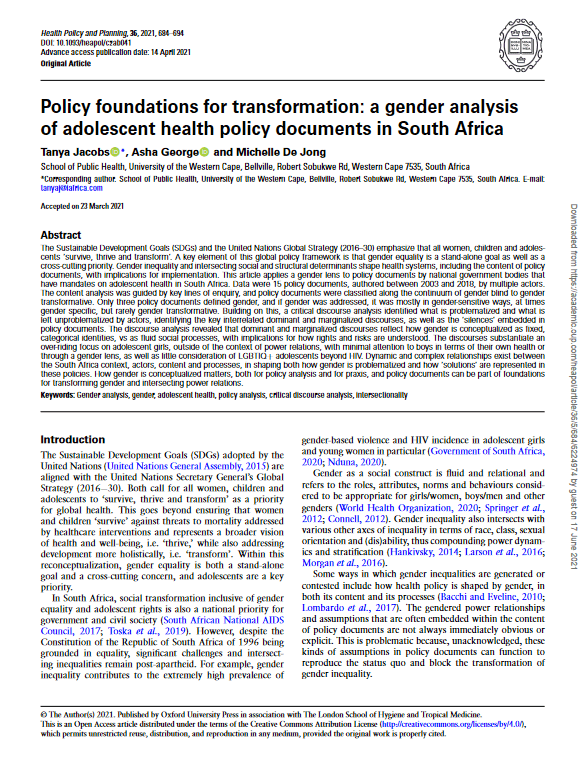Resources
![]()
This is a collection of resources from the Gender and Public Health Emergencies project and the Gender Working Group. You can search by year, country and type of resource. We hope you will enjoy reading this growing body of knowledge from around the world.
We have a wider collection of Gender and COVID-19 resources in this google document which is curated by Rosemary Morgan.
When Zika made headlines in 2016, images of women cradling babies affected with microcephaly spread across the media and pulled on heartstrings. But, as this book argues, whilst this outbreak was about women and babies, this outbreak also highlighted the lack of gendered considerations in global health security. The policy response to Zika focused on […]
An open letter to the WHO Director-General by Global Action on Men’s Health, jointly signed by a range of men’s health organizations around the world. Tragically, at least two million men around the world have so far died as a direct result of COVID-19. Men have borne an excess burden of serious disease and mortality […]
This report by the Women’s Policy Group Northern Ireland analyses the impact of COVID-19 on women and girls in Northern Ireland in terms of economic justice, health, social justice and cultural inequality. In addition to this, implications of Brexit and the need for a Bill of Rights will be examined and an analysis of international […]
There is mounting evidence that COVID-19 has gendered impacts. Women are bearing the brunt of the secondary effects of the pandemic, changes that are wrought by societal or political responses to the disease. It has impacted on a constellation of human rights – security and bodily integrity, freedom of movement, labour and education, and health […]
Gender and Social Protection in the COVID-19 Economic Recovery: Opportunities and ChallengesExecutive summary This paper analyses the potential contribution of social protection to a gender-transformative economicrecovery over the medium term, defined as running from the present to the end of 2022. It builds on theexisting Social Protection Approaches to COVID-19 Expert (SPACE) advice publication; SPACE […]
Over a year into the COVID-19 pandemic, it is evident that the pandemic is not only a global health crisis but is also causing a global economic recession that is exacerbating pre-existing gender inequalities. This brief analyzes how the pandemic’s economic effects impact women workers and the repercussions for gender equality in the Canadian economy. […]
Epidemics and pandemics, like COVID-19, are not gender neutral. Much of the current work on gender, sex, and COVID-19, however, has seemed implicitly or explicitly to be attempting to demonstrate that either men or women have been hardest hit, treating differences between women and men as though it is not important to understand how each […]
The aim of the study is to document how academics who mother have reorganized work and childcare since the beginning of the coronavirus (COVID-19) pandemic in the United States, how those shifts have affected their academic productivity, and solutions proposed by academics living these experiences. We collected data via an online survey and, subsequently, by […]
India has been coping with an overwhelmingly alarming second wave of the COVID-19 virus. The situation remains very distressing for citizens and frontline workers alike. Overburdened with patients, the healthcare system has collapsed. Many hospitals ran out of oxygen and critical drugs, as well as available beds. Cases peaked at around 400,000 new cases daily […]
Women are almost 70% of the global health and social workforce but it is estimated they hold only 25% of senior roles. During the COVID19 pandemic women have provided much of the health and care, but have not had an equal say in decision making. This pervasive leadership gap between women and men in health […]
The first session of the Generation Equality Forum, held in Mexico City this past March, marks the anniversary of the Fourth World Conference on Women and the adoption of the Beijing Declaration and Platform for Action (Beijing+25). Through the forum, governments, UN agencies, civil society organizations and others are working to advance global gender equality, […]
Since April 2020, researchers at the Harvard GenderSci Lab have been tracking COVID-19 cases and fatalities by sex/gender across 53 US states and territories, providing weekly updated numbers on the “US Gender/Sex COVID-19 Data Tracker.” This blog post documents the current state of COVID-19 sex/gender data, explains the need for more inclusive reporting, and shows […]
Objective To estimate the direct and indirect effects of the COVID-19 pandemic on mortality in 2020 in 29 high-income countries with reliable and complete age and sex disaggregated mortality data. Design Time series study of high income countries. Setting Austria, Belgium, Czech Republic, Denmark, England and Wales, Estonia, Finland, France, Germany, Greece, Hungary, Israel, Italy, […]
As our knowledge of sex- and gender-based medicine (SGBM) continues to grow, attention to precision in the use of related terminology is critical. Unfortunately, the terms sex and gender are often used interchangeably and incorrectly, both within and outside of the typical binary construct. On behalf of the Sex and Gender Women’s Health Collaborative (SGWHC), […]
Sex and sexuality are contentious concepts, blending the deeply personal with the profoundly political. They concern most of us in our private spaces of fantasy and meaning, relationships and families, pleasure and pain, creation and loss. But sex and sexuality are not solely private matters; with conceptual boundaries moving and being transgressed, they have increasingly […]
The UK census authorities have proposed guidance for the 2021 census indicating that the sex question may be answered according to subjective gender identity. This raises issues about the measurement of sex and gender identity which other data collection exercises are also contending with. This paper addresses the questions that have arisen regarding the census, […]
Since early 2020, global stakeholders have highlighted the significant gendered consequences of the COVID-19 pandemic, including increases in the risk of gender-based violence (GBV). Researchers have sought to inform the pandemic response through a diverse set of methodologies, including early efforts modelling anticipated increases in GBV. For example, in April 2020, a highly cited modelling […]
While the shift to electronic health records (EHR) in the medical profession was supposed to improve the quality and efficiency of healthcare for doctors and patients alike, many physicians have given the technology low grades. A new Yale study digs into the data on how physicians are using EHRs, including how time spent using the […]
The COVID-19 pandemic has refocused attention on many health inequalities, not least those related to gender. Globally, men and women are thought to be infected with COVID-19 in roughly equal numbers. But, overall, men are 40% more likely than women to die from COVID-19 and almost three times more likely to require admission to an […]
The Sustainable Development Goals (SDGs) and the United Nations Global Strategy (2016–30) emphasize that all women, children and adolescents ‘survive, thrive and transform’. A key element of this global policy framework is that gender equality is a stand-alone goal as well as a cross-cutting priority. Gender inequality and intersecting social and structural determinants shape health […]
Resources
![]()
This is a collection of resources from the Gender and COVID-19 project and the Gender Working Group. You can search by year, country and type of resource. We hope you will enjoy reading this growing body of knowledge from around the world.
We have a wider collection of Gender and COVID-19 resources in this google document which is curated by Rosemary Morgan.
When Zika made headlines in 2016, images of women cradling babies affected with microcephaly spread across the media and pulled on heartstrings. But, as this book argues, whilst this outbreak was about women and babies, this outbreak also highlighted the lack of gendered considerations in global health security. The policy response to Zika focused on […]
An open letter to the WHO Director-General by Global Action on Men’s Health, jointly signed by a range of men’s health organizations around the world. Tragically, at least two million men around the world have so far died as a direct result of COVID-19. Men have borne an excess burden of serious disease and mortality […]
This report by the Women’s Policy Group Northern Ireland analyses the impact of COVID-19 on women and girls in Northern Ireland in terms of economic justice, health, social justice and cultural inequality. In addition to this, implications of Brexit and the need for a Bill of Rights will be examined and an analysis of international […]
There is mounting evidence that COVID-19 has gendered impacts. Women are bearing the brunt of the secondary effects of the pandemic, changes that are wrought by societal or political responses to the disease. It has impacted on a constellation of human rights – security and bodily integrity, freedom of movement, labour and education, and health […]
Gender and Social Protection in the COVID-19 Economic Recovery: Opportunities and ChallengesExecutive summary This paper analyses the potential contribution of social protection to a gender-transformative economicrecovery over the medium term, defined as running from the present to the end of 2022. It builds on theexisting Social Protection Approaches to COVID-19 Expert (SPACE) advice publication; SPACE […]
Over a year into the COVID-19 pandemic, it is evident that the pandemic is not only a global health crisis but is also causing a global economic recession that is exacerbating pre-existing gender inequalities. This brief analyzes how the pandemic’s economic effects impact women workers and the repercussions for gender equality in the Canadian economy. […]
Epidemics and pandemics, like COVID-19, are not gender neutral. Much of the current work on gender, sex, and COVID-19, however, has seemed implicitly or explicitly to be attempting to demonstrate that either men or women have been hardest hit, treating differences between women and men as though it is not important to understand how each […]
The aim of the study is to document how academics who mother have reorganized work and childcare since the beginning of the coronavirus (COVID-19) pandemic in the United States, how those shifts have affected their academic productivity, and solutions proposed by academics living these experiences. We collected data via an online survey and, subsequently, by […]
India has been coping with an overwhelmingly alarming second wave of the COVID-19 virus. The situation remains very distressing for citizens and frontline workers alike. Overburdened with patients, the healthcare system has collapsed. Many hospitals ran out of oxygen and critical drugs, as well as available beds. Cases peaked at around 400,000 new cases daily […]
Women are almost 70% of the global health and social workforce but it is estimated they hold only 25% of senior roles. During the COVID19 pandemic women have provided much of the health and care, but have not had an equal say in decision making. This pervasive leadership gap between women and men in health […]
The first session of the Generation Equality Forum, held in Mexico City this past March, marks the anniversary of the Fourth World Conference on Women and the adoption of the Beijing Declaration and Platform for Action (Beijing+25). Through the forum, governments, UN agencies, civil society organizations and others are working to advance global gender equality, […]
Since April 2020, researchers at the Harvard GenderSci Lab have been tracking COVID-19 cases and fatalities by sex/gender across 53 US states and territories, providing weekly updated numbers on the “US Gender/Sex COVID-19 Data Tracker.” This blog post documents the current state of COVID-19 sex/gender data, explains the need for more inclusive reporting, and shows […]
Objective To estimate the direct and indirect effects of the COVID-19 pandemic on mortality in 2020 in 29 high-income countries with reliable and complete age and sex disaggregated mortality data. Design Time series study of high income countries. Setting Austria, Belgium, Czech Republic, Denmark, England and Wales, Estonia, Finland, France, Germany, Greece, Hungary, Israel, Italy, […]
As our knowledge of sex- and gender-based medicine (SGBM) continues to grow, attention to precision in the use of related terminology is critical. Unfortunately, the terms sex and gender are often used interchangeably and incorrectly, both within and outside of the typical binary construct. On behalf of the Sex and Gender Women’s Health Collaborative (SGWHC), […]
Sex and sexuality are contentious concepts, blending the deeply personal with the profoundly political. They concern most of us in our private spaces of fantasy and meaning, relationships and families, pleasure and pain, creation and loss. But sex and sexuality are not solely private matters; with conceptual boundaries moving and being transgressed, they have increasingly […]
The UK census authorities have proposed guidance for the 2021 census indicating that the sex question may be answered according to subjective gender identity. This raises issues about the measurement of sex and gender identity which other data collection exercises are also contending with. This paper addresses the questions that have arisen regarding the census, […]
Since early 2020, global stakeholders have highlighted the significant gendered consequences of the COVID-19 pandemic, including increases in the risk of gender-based violence (GBV). Researchers have sought to inform the pandemic response through a diverse set of methodologies, including early efforts modelling anticipated increases in GBV. For example, in April 2020, a highly cited modelling […]
While the shift to electronic health records (EHR) in the medical profession was supposed to improve the quality and efficiency of healthcare for doctors and patients alike, many physicians have given the technology low grades. A new Yale study digs into the data on how physicians are using EHRs, including how time spent using the […]
The COVID-19 pandemic has refocused attention on many health inequalities, not least those related to gender. Globally, men and women are thought to be infected with COVID-19 in roughly equal numbers. But, overall, men are 40% more likely than women to die from COVID-19 and almost three times more likely to require admission to an […]
The Sustainable Development Goals (SDGs) and the United Nations Global Strategy (2016–30) emphasize that all women, children and adolescents ‘survive, thrive and transform’. A key element of this global policy framework is that gender equality is a stand-alone goal as well as a cross-cutting priority. Gender inequality and intersecting social and structural determinants shape health […]
